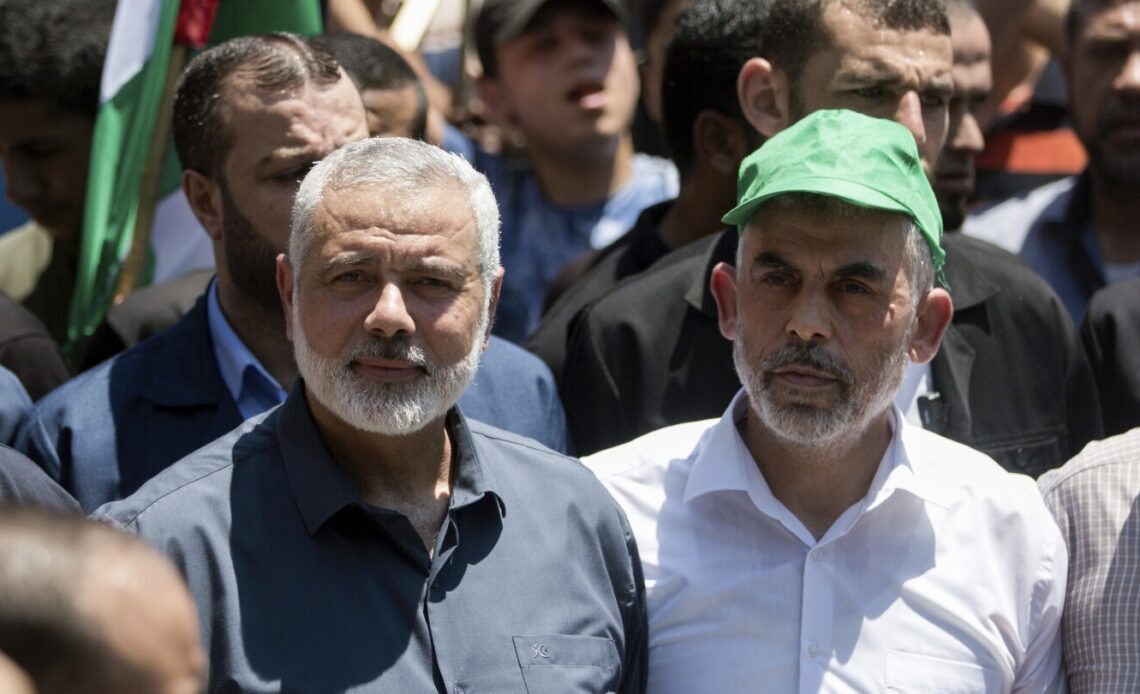BEIRUT (AP) — The killing of Hamas leader Yahya Sinwar by Israeli forces in Gaza this week leaves the Palestinian militant group considering new leadership for the second time in less than three months.
Will Hamas now turn away from its hard-line wing or will it double down, and what will it mean for the group’s future and for the revival of cease-fire and hostage exchange negotiations between Hamas and Israel?
Sinwar replaced Hamas’ previous leader, Ismail Haniyeh, after Haniyeh was killed in July in a blast in Iran that was widely blamed on Israel.
As an architect of the Oct. 7, 2023, attack in southern Israel that sparked the war in Gaza, Sinwar was a defiant choice at a time when some expected the militant group to take a more conciliatory approach and seek to end the conflict.
Sinwar’s killing appeared to be a chance front-line encounter with Israeli troops on Wednesday.
Sinwar’s death has little immediate impact on Hamas
Killing Sinwar marked a major symbolic victory for Israel in its yearlong war against Hamas in Gaza. But it has also allowed Hamas to claim him as a hero who was killed in the battlefield, not hiding in a tunnel.
While the group is on the defensive and has been largely forced underground in Gaza, it continues to fight Israeli forces in the enclave and to exert political influence.
Bassem Naim, a Qatar-based member of the group’s political bureau, said in a statement that Israel had killed other Hamas leaders, including its founding leader, Sheikh Ahmed Yassin, and his successor, Abdel Aziz Rantisi, who were killed by airstrikes in 2004.
“Hamas each time became stronger and more popular, and these leaders became an icon for future generations,” he said.
The impact of Sinwar’s death on military operations in Gaza remains to be seen. But Sadeq Abu Amer, head of the Turkey-based think tank Palestinian Dialogue Group, said that “there will be no significant impact on the political structure of Hamas.”
When Sinwar was appointed, “the situation was basically arranged so that Hamas could manage its political affairs and manage the organization independently of Sinwar” because of the difficulties of communication between Sinwar and Hamas’ political leaders outside of Gaza, he said.
Most matters were managed by “collective leadership” between the head of the group’s Shura Council and officials in charge of the West Bank, Gaza and regions…

